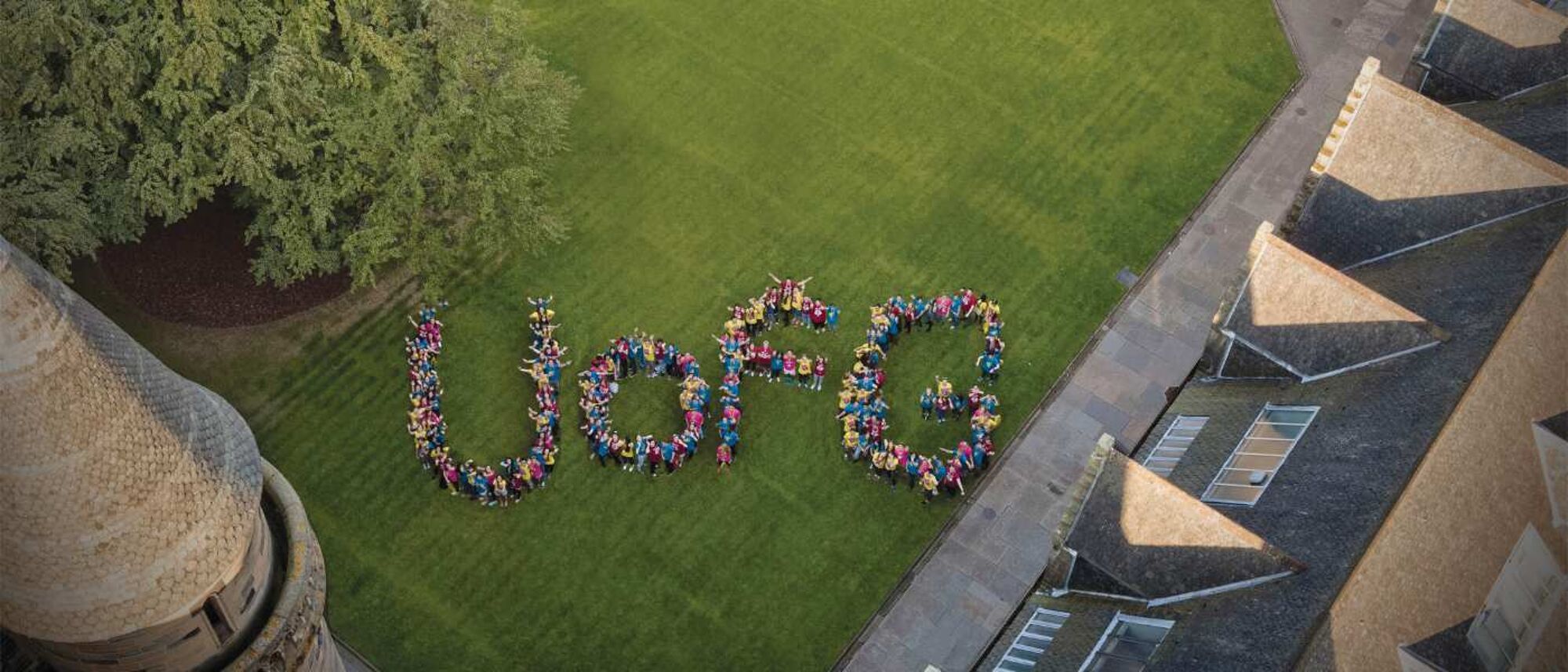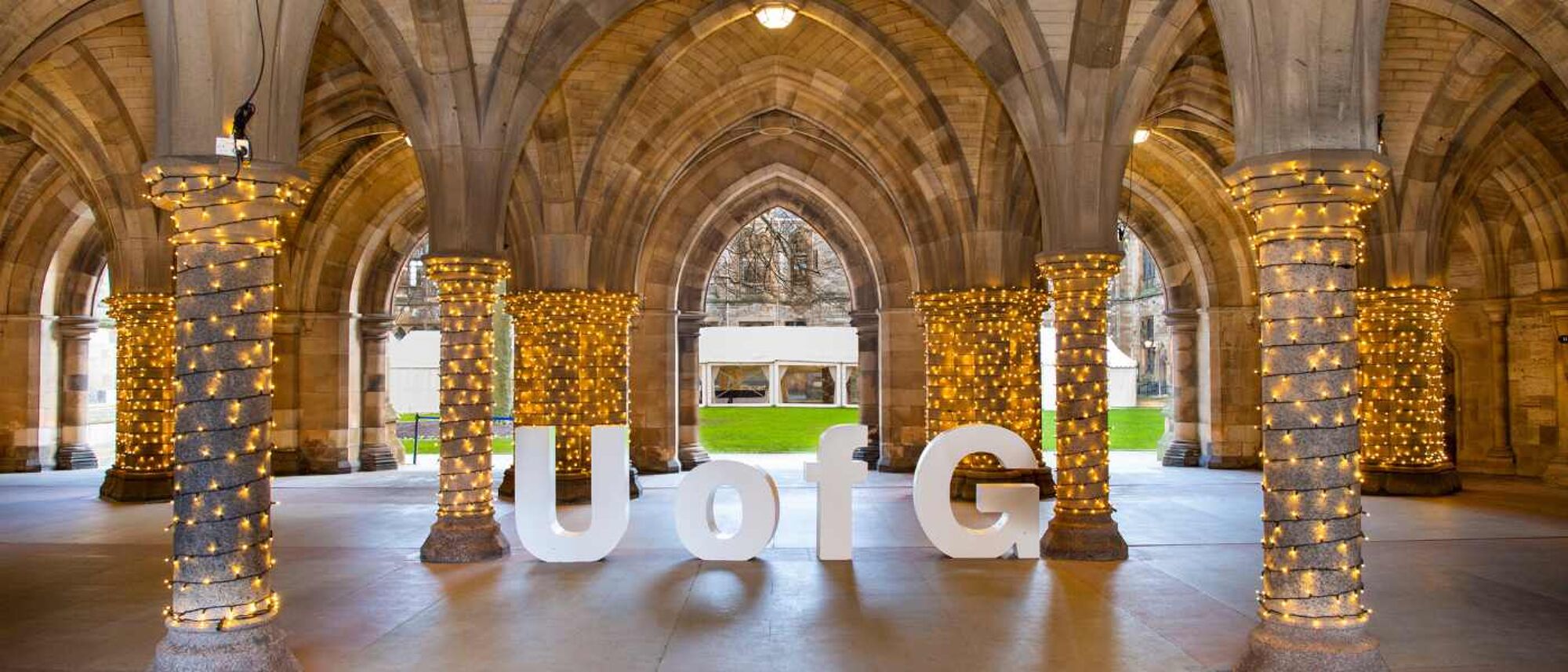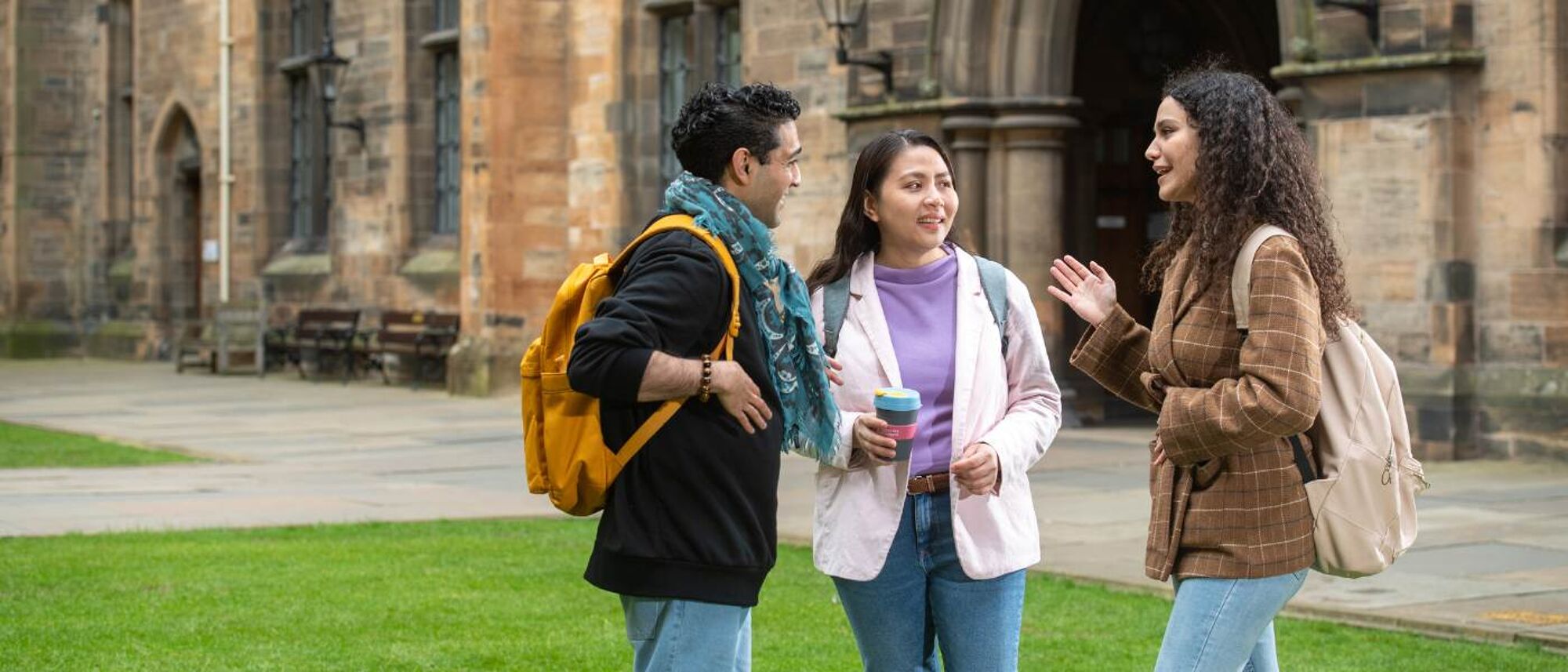
Discover the power of the media
When political turmoil caused social unrest in her home country of Thailand, Punsita Ritthikarn discovered her calling: using the media to promote human rights and civil society. That led her to pursue a Media, Communications & International Journalism MSc at the University of Glasgow. In this programme, she prepared herself to be a contemporary political reporter, honing and polishing her critical thinking and editorial skills as a writer.
The University’s journalism programme showed the role of modern media in the construction of public understanding. It helped me comprehend how western media frames its coverage of the developing world,” Ritthikarn says.
Students like Ritthikarn discover more powerful aspects of the fourth estate in their programme. Vested interests, from the right and left, can sway an editor’s decision whether or not to cover certain events and in turn, influence public opinion. But news agencies can just as well give voice to the voiceless, from marginalised groups in third world countries or invisible victims of discrimination and violence.
Courses like the Media, Communications and International Journalism MSc expose students to these intricacies through its hands-on approach. For Ritthikarn, her two-month summer internship at BK Magazine taught her to become competent in practical magazine journalism. That includes copywriting, researching the audience, proofreading and digital photography.
My last article with BK titled ‘Illustrator challenges rape culture in Thailand’ encouraged me to explore political journalism and write more socially sensitive stories,” she says.
Ritthikarn spent another three months at the daily newspaper, Khaosod English, where she examined the role of digital media in society and produced hard news – the kind that analyses global trends and international affairs. Here, she learned how to deal with criticism about her work and adjusted her writing style.
These experiences would prove useful later in her career. The graduate would go on to write for online media platforms that engaged in the battle for racial equality. On top of that, she collaborated with other writers to launch digital magazines such as Speak Out, The New Feminist and Matchstick that magnified the silent voices of marginalised people who face discrimination.

As a university committed to the Sustainable Development Goals (SDGs), the University of Glasgow has been ranked 12th in the world for its positive impact on society, according to the Times Higher Education Impact Rankings 2024.
For Lena Brandesova from the Czech Republic, her Political Communication MSc was as multidisciplinary as it was experiential. “Politics do not exist in a vacuum, so I liked the combination of specialist subjects in this area with media studies, psychology and international relations, as well as the combination of political actors with government, civil society and regulatory bodies,” she says.
For the compulsory assessments on the Media & Democracy course, she was encouraged to engage with real-life materials developed for recent elections in her home country. “This helped me become much more sensitive to the language, style and tone politicians and political parties may choose to appeal to their audience and the media, going beyond simple word choice and literal meaning,” she says.
Two months before graduating from the University of Glasgow, Brandesova was recruited by a public affairs agency based in Edinburgh in a junior executive role. In just a year, she was promoted and given additional responsibilities over client portfolios. “I have since built relationships with clients operating in various sectors and now regularly advise on issues concerning the UK and Scotland’s transition to a Net Zero economy, as well as on education policy or tech,” she says.

"At the same time, students have the perfect setting for future media and communication experts to thrive."
The University of Glasgow offers a wide array of programmes that allow you to explore your interest and passion in the communication field. All programmes ensure students gain a deep understanding on how their sub-discipline works and how they can apply what they learn to a wide range of opportunities within the labour market:
- Digital Society MSc
- Media, Culture & Society MSc
- Media, Communications and International Journalism MSc
- Political Communication MSc
- Environment, Culture & Communication MLitt (Dumfries Campus)
At the same time, students have the perfect setting for future media and communication experts to thrive. Step into the Glasgow University Media Group and you’ll discover staff and students pursuing innovative sociological research which examines the impact of media content on public understanding and belief.
Previous research includes content analysis and media focus groups. Its methodologies have been applied across different fields of social sciences and by researchers in areas such as health behaviour, mental health, discrimination, climate change and other areas of social policy.
At the Social and Digital Change Group, research themes focus on the connections between contemporary digital and social worlds. This includes questions about how people can access the processes of knowledge production in media, science, and cultural domains and how transparent knowledge production is.

"I wanted to experience an open, supportive but thought-provoking environment and the university ticked all the boxes. The University of Glasgow also has a vibrant international community and I knew I would feel at home." - Lena, Political Communication MSc
Glasgow is also a hub for the media industry in Scotland. The country houses the headquarters of BBC Scotland, STV and a wide range of major press titles like The Herald and The Daily Record.
The University of Glasgow ranks among the top 100 universities in the QS World University Rankings 2025 and sits among the top 100 for Communication and Media Studies (QS World University Ranking By Subject 2024).
Look beyond these rankings, and you’ll discover a diverse student community and faculty from over 140 countries. You’ll get to experience what it’s like to address global issues by discussing them in a multicultural setting.
Brandesova can attest to this. “It’s no secret that the University of Glasgow has a fantastic academic reputation and high-quality research recognised internationally, but that was only one part of my decision to study there,” she says. “I wanted to experience an open, supportive but thought-provoking environment and the university ticked all the boxes. The University of Glasgow also has a vibrant international community and I knew I would feel at home.”
Find out more about Media & Communications programmes at the University of Glasgow, and learn how you can forge a critical lens on the power of media and communications.





